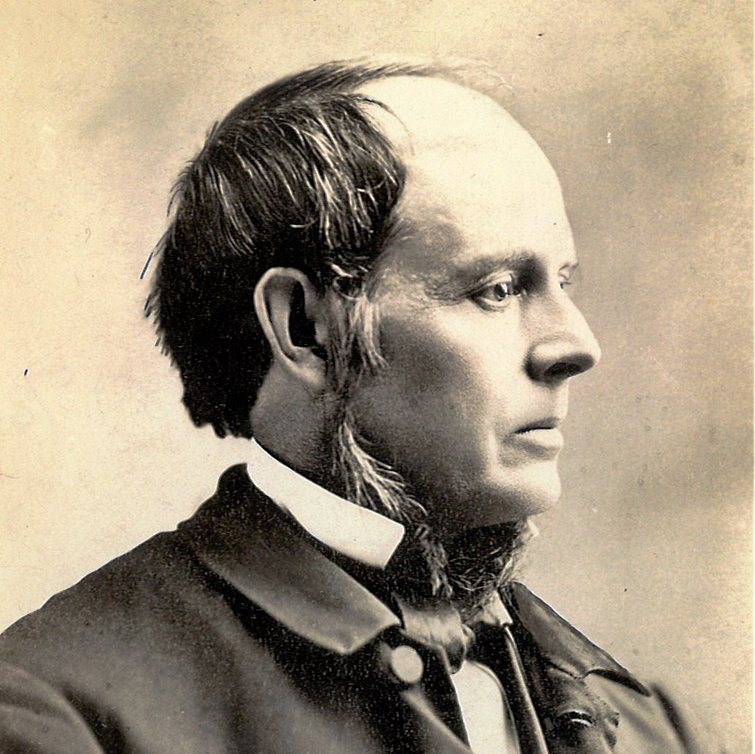By B.T. Roberts
It is not necessary to teach us how to lose our health. Works on hygiene do not attempt to do that. A simple neglect of the laws of health will bring on disorder, disease, and finally death.
To become a confirmed dyspeptic, one does not need to commit some striking and willful act of disobedience to the laws of our physical being. Many people have lost their health without being able to tell how they lost it.
So the Bible does not teach us how to lose holiness. It gives us very explicit directions how to keep it. Here are a few:
“May the Lord make your love increase and overflow for each other and for everyone else, just as ours does for you. May he strengthen your hearts so that you will be blameless and holy in the presence of our God and Father when our Lord Jesus comes with all his holy ones.” (1 Thessalonians 3:12-13).
“ Therefore, my brothers and sisters, make every effort to confirm your calling and election. For if you do these things, you will never stumble, and you will receive a rich welcome into the eternal kingdom of our Lord and Savior Jesus Christ.” (2 Peter 1:10-11).
“Who through faith are shielded by God’s power until the coming of the salvation that is ready to be revealed in the last time.” (1 Peter 1:5)
Notice, in each of these passages, there is something for us to do if we would keep holiness and get through to heaven. In the first, we are told that we must make our “love increase and overflow for each other and for everyone else.”
What we had when we were converted, or when we were sanctified wholly, is not sufficient. It is not enough that we grow in knowledge; there must be a marked increase in love. We must abound in it — not merely toward those who love us, but toward all people.
_
“We are taught that it is the power of God that keeps us.”
_
Growing in Grace
In the second passage we are directed to do certain things. The things to be done in order that we may “never stumble” are Christian graces to be added to the beginnings of graces received when we were converted and sanctified wholly.
Some lakes and inland seas are without outlets; but none are without inlets. Insensible evaporation would soon dry up the largest of them if its waters were not receiving a constant addition. The sturdiest tree would soon die if it could derive no nourishment from earth or air.
So no matter how much grace a person received when converted and sanctified wholly, if the person does not grow in grace, the person will become dry and unfruitful, spiritually dead and insensible to his or her condition. The person’s outward conduct may be without reproach, but the person’s power is gone.
To keep a house in good order, repairs must be made as need requires. To keep wealth, one must be acquiring wealth. To keep learning, one must be adding to one’s store of learning, and, to keep holiness, one must be steadily “perfecting holiness out of reverence for God” (2 Corinthians 7:1).
In the third passage quoted, we are taught that it is the power of God that keeps us. This is frequently stated in the Scriptures.
“To him who is able to keep you from stumbling and to present you before his glorious presence without fault and with great joy.” (Jude 24)
_
“The person who is kept by the power of God is kept in safety.”
_
Kept by God’s Power
God’s power is adequate to carry us safely through any emergency that can possibly arise. However, numerous and strong may be our enemies, God can easily overcome them. Whatever difficulties may stand in our way, He can remove them.
If a sea lies in our path, He can open a passage through it. If a mountain would stop our progress, He can give us wings like an eagle and enable us to soar above it. In the furnace, He can keep us. In the desert, He can feed us. Nothing is too great or too hard for the almighty power of God.
The person who is kept by the power of God is kept in safety. God is willing, nay anxious, to keep us all. God is just as ready to keep one as another.
Then why are not all kept? The reason is found in us, and not in God. We are kept through faith. This faith is a voluntary trust on our part. One is kept, because the person, of his or her own free will, exercises faith in God. Another doubts, and thus severs personal union with God, and the person in consequence falls into darkness and at last into sin.
There are many passages of Scripture which teach that we are kept by the infinite love and power of God. But, like those we have considered, they imply or express conditions which we are to meet.
These conditions are important. If we meet them, we keep the grace that God has given us. If we fail to meet them, then we lose the blessing of holiness. Many lose it in this way without knowing it.
This was the case with the minister of the church of Ephesus. He was so active, so patient, so orthodox, and so zealous for the purity of the church that he had not the slightest idea that he had met with any serious loss. His zeal against evil-doers and false teachers had taken the place of the tender love he had in other days. He considered himself radical, and uncompromising, and established in the faith. But Christ pronounced him fallen.
_
“Are you fulfilling the conditions on which the keeping of the blessing of holiness depends?”
_
Clear and Fresh
Reader, have you had a clear experience of being sanctified wholly? If not, then seek it at once. You cannot afford to live another day without it.
If you have obtained this blessing are you keeping it clear and fresh? You may keep up the profession. Many do, long after they have lost the blessing. There may be nothing particularly amiss in their conduct or conversation, but they do not bring forth the fruits of holiness. They have not its joy or its power. They lack its gentleness, its meekness, its simplicity. Their profession is based upon reasoning or habit, and not upon the direct witness of the Spirit.
Beloved, how is it with you at the present time? Are you fulfilling the conditions on which the keeping of the blessing of holiness depends?
If you are not increasing and abounding in that tender, unselfish love that makes you careful of the reputation of others, and considerate of their interests and happiness; if you are reckless in your statements, and ready with damaging insinuations against those who do not agree with your opinions; or if, on the other hand, you are light and trifling, gradually conforming to the world in your conversation, in your dress, and in your business, then you have every reason to believe that you have lost the blessing of holiness.
Be honest with yourself. Welcome the light, and humble yourself before God, and seek to be right with Him no matter how much humiliation it may involve.
+

B.T. Roberts was a principal founder of the Free Methodist Church and the founding editor of The Earnest Christian. He later served as the editor of The Free Methodist publication, which is now Light + Life. This article is adapted from Chapter 20 in “Holiness Teachings: The Life and Work of B.T. Roberts.” Minor edits have been made for contemporary readability and Light + Life’s current style guidelines. Visit fmchr.ch/holyhealth to read Roberts’ full text via the Christian Classics Ethereal Library.











